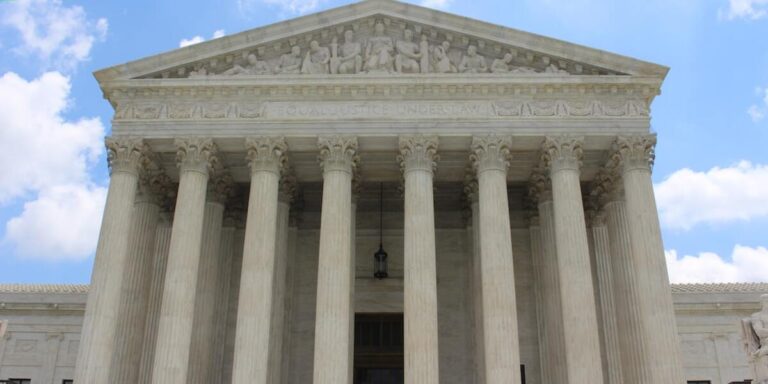Does a car have to go through probate in NJ?
If you are in the process of dealing with a deceased person’s estate, it is important to know if their car must go through probate. In New Jersey, this can be a complicated question and requires an experienced cherry hill probate lawyer who understands state laws and regulations regarding vehicles. This blog post will provide insight into whether or not cars have to go through probate in NJ as well as other information that may help those going through the legal processes associated with settling an estate.
When someone passes away without leaving behind instructions for how they would like their assets distributed, then these matters need to be settled by following certain procedures set out by law – one of which being probating the decedent’s assets such as real property (land) and personal property (vehicles). The purpose of this blog post is to answer any questions about whether or not cars must pass through Probate Court when someone dies in New Jersey so that individuals involved can make informed decisions about what needs to happen next.
What is Probate and How Does it Affect Car Owners in New Jersey?
Probate is the legal process of transferring ownership and possession of a deceased person’s assets to their rightful heirs. This includes real estate, cars, bank accounts, investments and other personal property. In New Jersey probate law requires that all estates be administered through either an executor or administrator appointed by the court. The purpose of this process is to ensure that any debts owed are paid off before distribution occurs among beneficiaries as specified in a will or trust document if one exists.
For car owners in Cherry Hill specifically it’s important to understand how these laws may affect them during times when someone close passes away unexpectedly without having made arrangements for their vehicle beforehand. Depending on whether they were listed as joint owner with another individual who survives them or not could determine what happens next with regards to title transfer after death has occurred . If there was no such arrangement then going through probate would be necessary prior to being able transfer ownership over properly under NJ state law guidelines
Understanding the Laws Around Vehicle Inheritance in NJ
Vehicle inheritance in New Jersey is a complex process that requires an understanding of the state’s probate laws. It’s important to be aware of these regulations before beginning the vehicle transfer process, as failing to do so can result in costly fines and other legal repercussions. A Cherry Hill Probate Lawyer will have expertise on all aspects related to transferring vehicles through intestacy or via estate planning documents such as wills and trusts. They are able to help with navigating this complicated area of law by providing guidance regarding who has rights over inherited assets like cars, boats, motorcycles etc., how those rights should be exercised legally within NJ courts system and any additional paperwork needed for title transfers from one owner/family member to another. Furthermore they provide advice about whether certain types of insurance may need updating after ownership changes hands; ensuring smooth transitions between family members when it comes time for asset distribution upon death or incapacity due circumstances beyond their control.
Finding Professional Assistance with Estate Planning for Your Automobile
When it comes to estate planning for your automobile, you need the help of a professional. A cherry hill probate lawyer can provide assistance in making sure that all aspects of an estate plan are properly taken care of and that no detail is overlooked. They will be able to review existing documents such as titles, insurance policies and other important paperwork related to your vehicle so they can ensure everything is up-to-date with current laws and regulations. Additionally, they will also be able to advise on how best structure any trust or wills associated with the car’s ownership in order for them to remain valid after death or incapacitation. Furthermore, these lawyers have experience dealing with complex legal issues surrounding estates which makes them well suited when it comes time make decisions about who should inherit certain assets like vehicles upon one’s passing away. In addition their knowledge base allows them answer questions regarding taxes due at sale or transfer along with providing advice on gifting cars during life while minimizing potential tax liabilities down the road
Frequently Asked Question
-
Does a car have to go through probate in NJ?
-
Who gets notice of probate in NJ?
-
Who gets inheritance if no will in NJ?
-
How long does NJ probate take?
-
How do I avoid probate in NJ?
-
Can an executor pay beneficiaries before probate?
-
Is probate mandatory in NJ?
-
Who is responsible for applying for probate?
-
Is inheritance money taxable in NJ?
How to Handle Estate Assets Probate assets include life insurance proceeds payable to the estate, but not to a named beneficiary.
After the will is probated, according to the New Jersey Rules of Court (Rule 4:80-6), the executor of an estate must mail a Notice of Probate at all beneficiaries or next-of-kin to the deceased to their last known address within 60 days of probating the will.
New Jersey’s law on intestate succession states: A spouse who dies leaving behind a husband or wife, a registered domestic or civil partner or children, as well as any children, receives 100 percent of the estate. No bond is necessary.
Although probate is intended to simplify the process of distributing your loved one’s estate, you may still be waiting a while before your inheritance. To account for any claims against an estate, open probate cases in New Jersey can take up to nine months. Probate could take up to a year on average.
You can create a living trust in New Jersey to prevent probate of virtually all assets you have, including real estate, bank accounts and vehicles. A trust document, which is similar to a will, must be created. It names someone who will take over the trustee role after you die (also known as a successor trustee).
Unless you are granted probate letters or other forms of administration, you cannot begin to share the estate with others or get any money.
Only probate assets that are included in a will must be registered with the state. If a probate asset does not have beneficiary designations through another means, it is considered a probate asset. You can bypass probate in some cases by simply naming a beneficiary to your bank account or life insurance.
An executor is also known as an administrator. This person deals with the estate of the deceased. The executor, also known as an administrator or executor in a will, is the person who handles the estate. Before they are able to deal with an estate, the executor might need special legal authorization. This is known as probate.
Since 1892, New Jersey has been subject to an Inheritance tax. This is a tax on the transfer of property from a decedent to a beneficiary. The Inheritance tax is determined by who will or has already received assets from a deceased person and the amount each beneficiary can receive.
Conclusion
In conclusion, the answer to whether a car has to go through probate in NJ is yes. Probating an estate can be complicated and it’s important that you find a lawyer who understands the process and can help guide you along every step of the way. If you are looking for experienced cherry hill probate lawyers, we recommend doing your research online first before making any decisions. Look for trusted links on our website as well as reviews from past clients so that you know what kind of service they provide. With this information at hand, finding a qualified attorney should be much easier!




